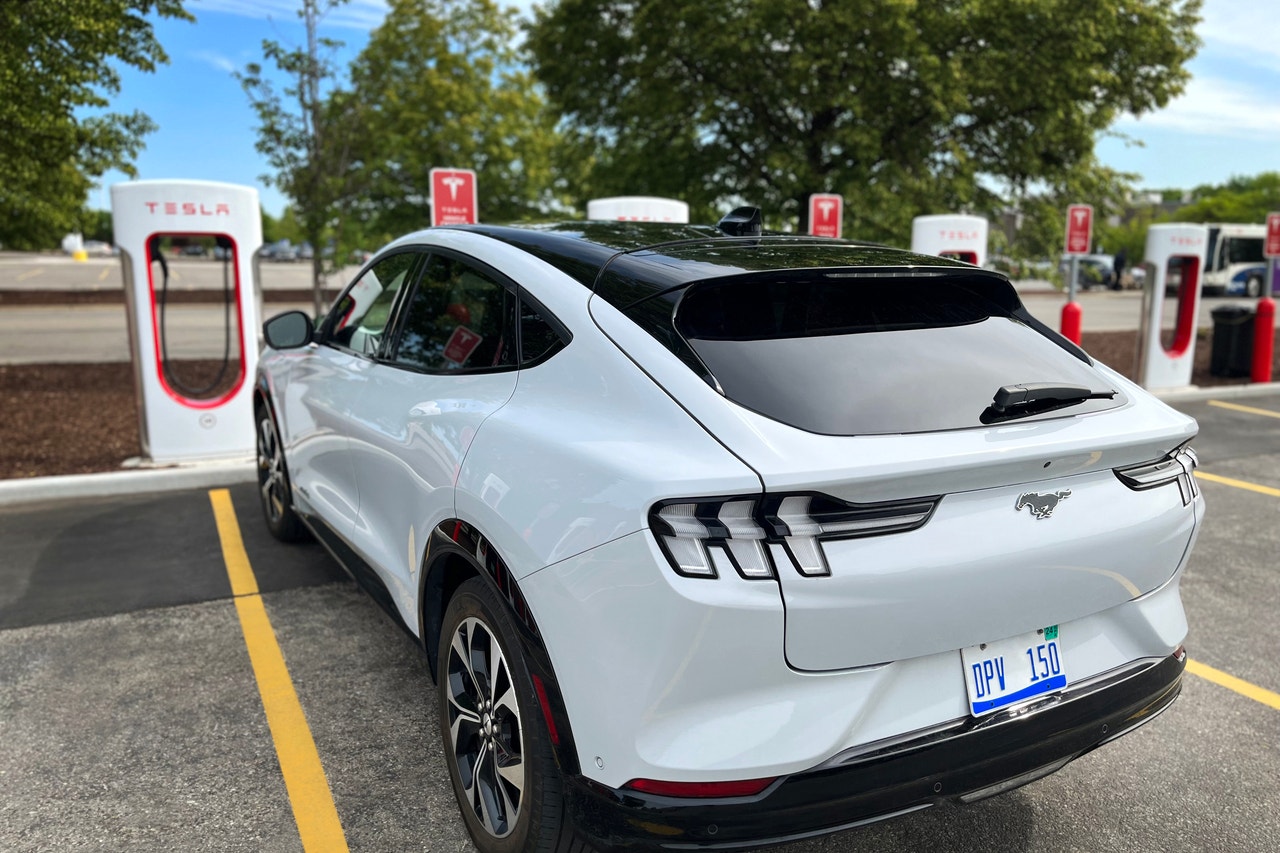- Ford is giving Tesla Supercharger charging adapters to Mustang Mach-E and F-150 Lightning owners, CEO Jim Farley announced.
- Next year, Ford will switch to producing its EVs with Tesla's NACS plug.
- Current Mach-E and F-150 Lightning owners are eligible to receive the adapter.
Ford Gifting Mach-E, F-150 Lightning Owners Tesla Charging Adapter
Last year, Ford CEO Jim Farley made the shocking announcement that beginning this spring, owners of the Mustang Mach-E and F-150 Lightning would be able to tap into Tesla's vast Supercharger network to recharge their EVs on the go. Farley provided additional details today — the automaker will soon ship complimentary adapters that will allow Ford vehicles to charge at the more than 12,000 Supercharger stations across the U.S. and Canada that use Tesla’s North American Charging Standard (NACS) plug.
Ford, along with numerous other manufacturers, currently uses the Combined Charging System (CCS) plug on all its vehicles. The automaker was the first of many non-Tesla OEMs to signal that, starting next year, new electric vehicles will come with the NACS charge port standard. So, in the future, owners won’t need an adapter to use Tesla’s charging network. Other automakers like BMW, General Motors and Toyota have also said that their vehicles will be able to use certain Tesla Superchargers starting this year.
“We want to make charging more convenient for our Ford EV owners,” Farley said in his social media post. A Ford spokesperson told Edmunds that all 2021 to 2024 model year Mustang Mach-E and F-150 Lightning owners are eligible to receive the adapter free of charge. All they must do is provide Ford with their VIN. Ford told us that more instructions will be available in the coming weeks.
Am I Ready for an EV?
- EV ownership works best if you can charge (240V) at home or at work This typically means a 240V home installation, but you could also have a similar setup at your office or other places your car is already parked for several hours each day. Don't expect a regular household outlet (120V) to suffice unless you've got a plug-in hybrid, in which case overnight charging at home is feasible.
- If you can’t charge at home, charging at a charging station could take at least 10x longer than at a gas station With public charging infrastructure still in its infancy, the user experience can be maddeningly inconsistent. Tesla owners tend to rave about the reliability and speed of the company's proprietary Supercharger stations, but rival DC fast options have thus far been plagued by technical issues and overcrowding. It's an evolving landscape and our best advice is to do your research on the available options for the EV you want to buy.
- Adding a 240V home charging system could cost up to $1,600 or more If your existing electrical service can handle the additional demands of EV charging, you may be able to add Level 2 charging at home for less than a grand, including installation. But your costs will multiply if you need to upgrade your electrical panel or add a dedicated circuit.
Edmunds says
There currently are few Supercharger stations nationwide that have what Tesla calls a Magic Dock that has both Tesla's traditional NACS charger and a CCS charger — and more will be added. If you don’t live near one of these supported stations, then Ford EV owners will have more access than others to North America’s vast charging infrastructure.

.jpg) by
by 
